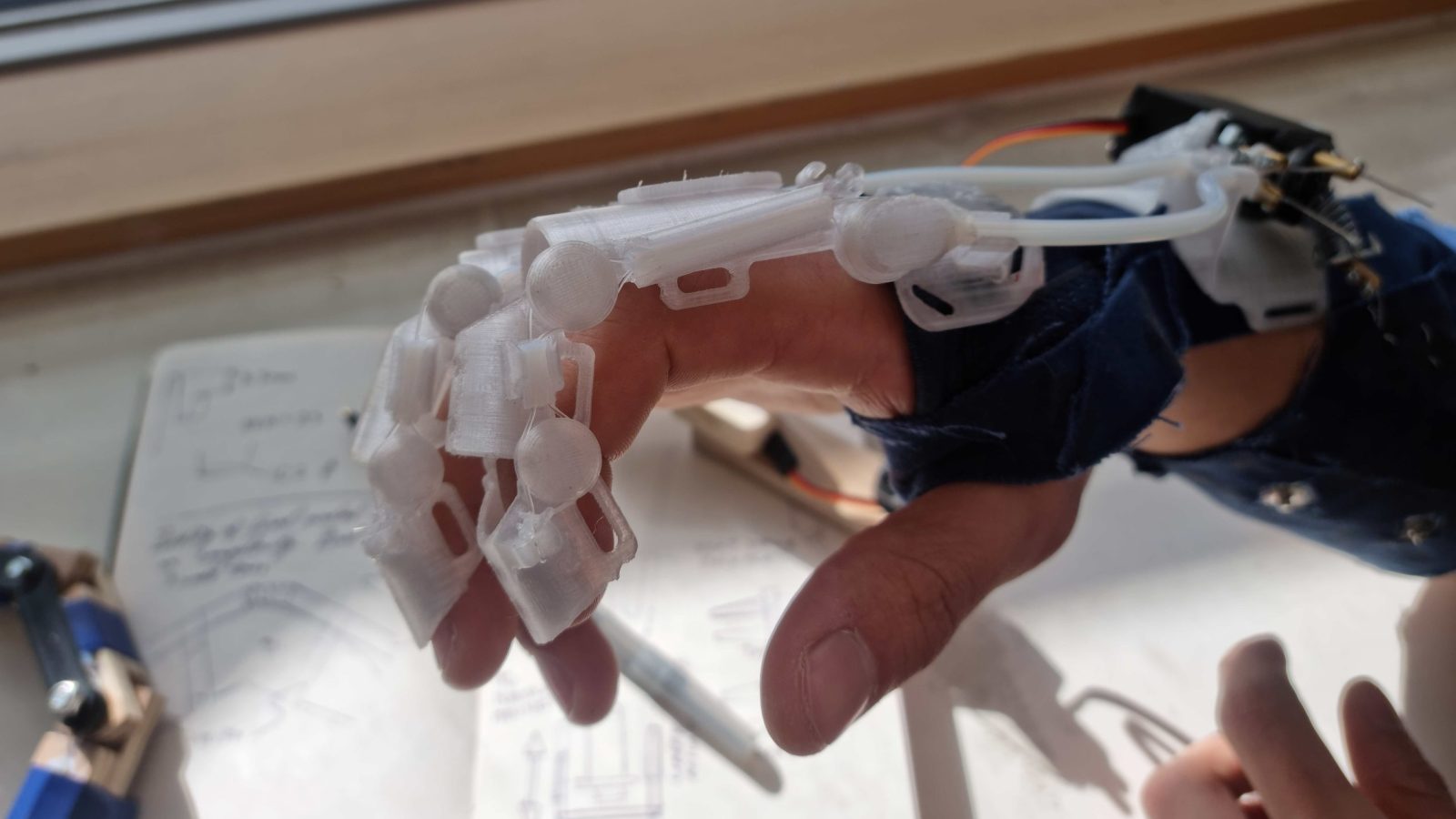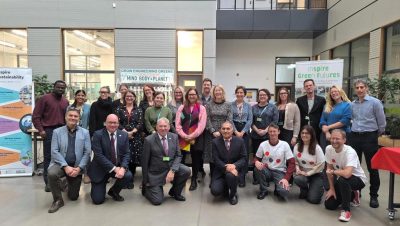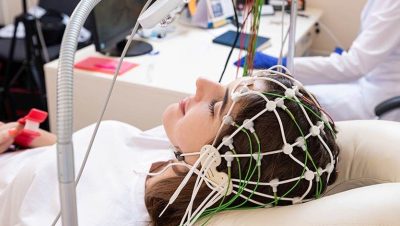News / UWE Bristol
Personal story inspires uni student to develop bionic glove to boost stroke recovery
Some 1,200 final-year students from 40 disciplines at UWE Bristol are set for the annual Degree Show that celebrates the innovation and creativity of the next generation of movers and shakers. Among them is Kieran Gulliford from Iron Acton in Gloucestershire.
Kieran, a 22-year-old Product Design Technology student, will present Neuro Grip, a prototype bionic glove aimed at aiding stroke rehabilitation, at UWE Bristol’s annual Showcase.
However, it was more than an academic exercise and abstract project for Kieran, who was inspired by a personal story involving a family member.
is needed now More than ever
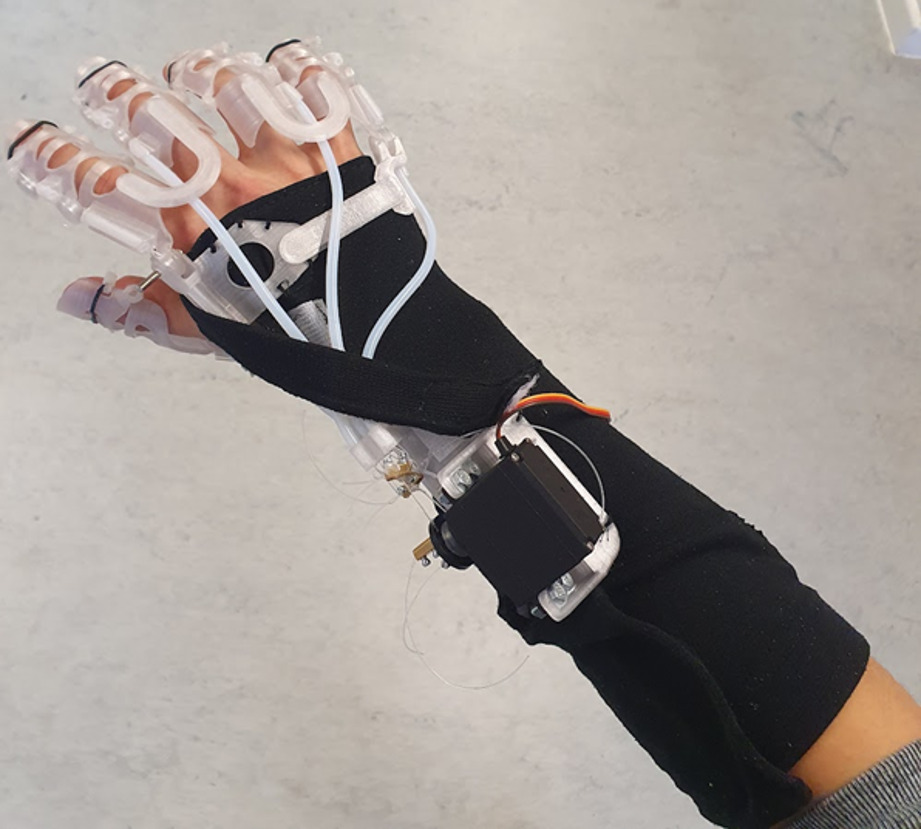
The lightweight exoskeleton is designed for stroke patients who retain some muscle activity but struggle with grip strength
About 10 years ago, Kieran’s grandfather suffered a stroke and the rehabilitation process was slow and difficult. Kieran recounts how that experience inspired his current project.
“That experience stayed with me,” he said. “When I started this project, I wanted to work on something meaningful – not just a gadget for the sake of it. I wanted to create something useful for society with Neuro Grip.”
Gifted with a knack for designing and crafting, Kieran used to bring his projects to life in his parents’ garage. His design acumen went from strength to strength during his time at UWE, ultimately prompting him to develop the bionic glove.
The lightweight exoskeleton is designed for stroke patients who retain some muscle activity but struggle with grip strength.
It enhances natural movement by detecting electrical signals in forearm muscles and providing motorised assistance for hand motions, encouraging active engagement rather than passive movement.
Unlike current devices that rely on buttons, Neuro Grip strengthens the feedback loop between effort and motion, aiding brain retraining.
Kieran said: “The wearer still needs to try to move their hand, and the glove picks up on that effort. Once the signal reaches a certain threshold, the glove assists with completing the gripping motion. That threshold can be adjusted depending on the user’s capabilities and stage of recovery.
“This is different from existing products, which often rely on pressing a button to move the hand, creating a disconnect between effort and movement. My glove is designed to strengthen that feedback loop – you must engage the correct muscles, which aids in brain retraining and rehabilitation.”
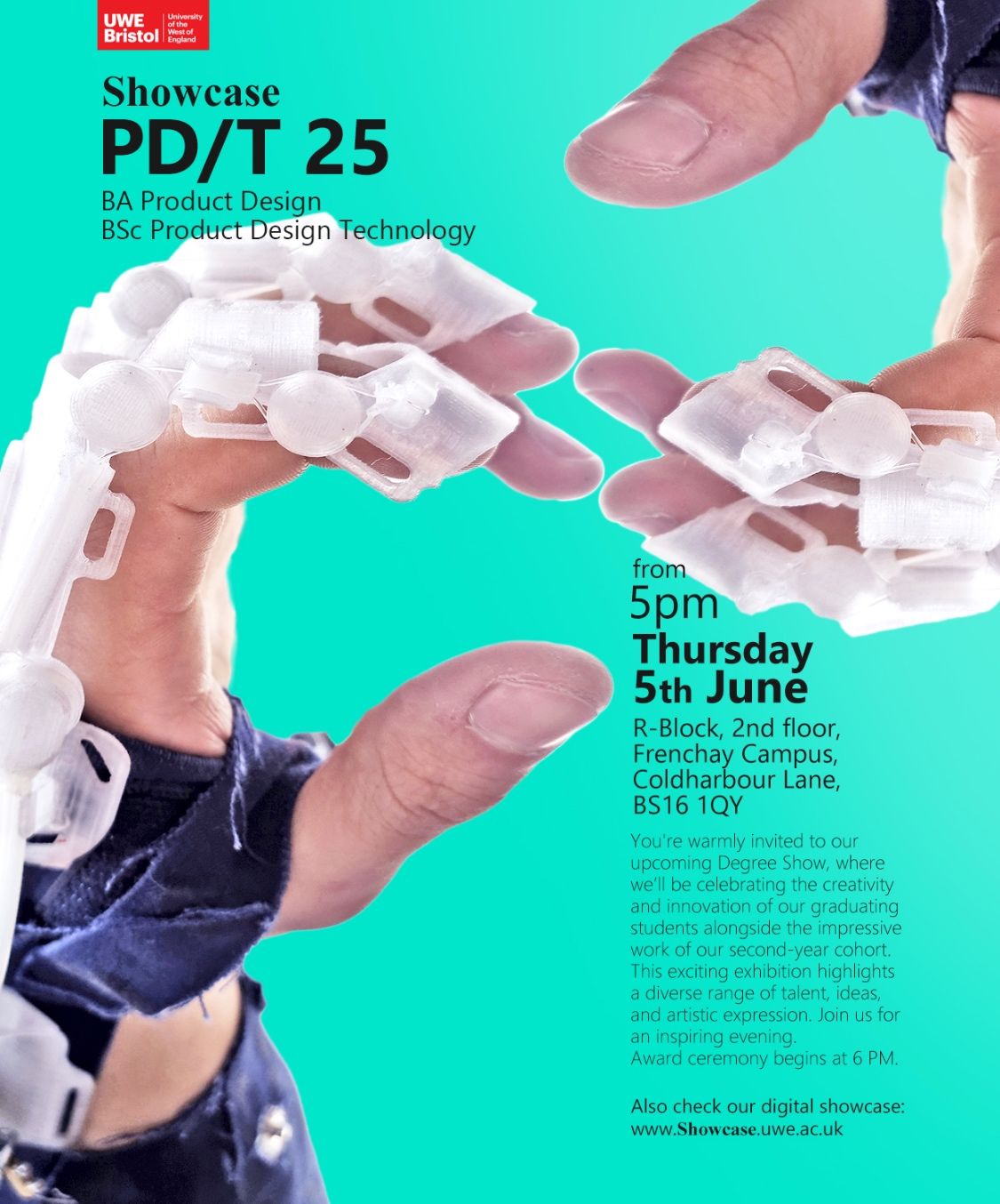
According to the NHS, some 100,000 people have a stroke each year in the UK, equating to roughly one stroke every five minutes. Muscle weakness is common after a stroke which has a debilitating impact on everyday activities.
The design could be used in conjunction with intensive physiotherapy sessions, helping patients to regain functionality more quickly.
“From speaking with physiotherapists during my research, it became clear that helping people train more effectively in their own home could improve recovery times,” added Kieran.
“So, by designing a device that makes rehabilitation exercises less tiring, it could be really beneficial.”

Kieran Gulliford will present Neuro Grip at UWE Bristol’s annual Showcase
Kieran Gulliford expressed pride in his accomplishments, calling the prototype a “decent start” for a five-month project. He would like to continue refining it in his spare time over the next year. He added: “I’d love to get it to a point where I could produce it for someone and have it work reliably.”
The public can view Kieran’s work from June 5–11 at UWE Bristol’s Frenchay campus.
For more information, visit www.uwe.ac.uk/events/degree-show
All photos: Kieran Gulliford
Read next:
 Our newsletters emailed directly to you
Our newsletters emailed directly to you